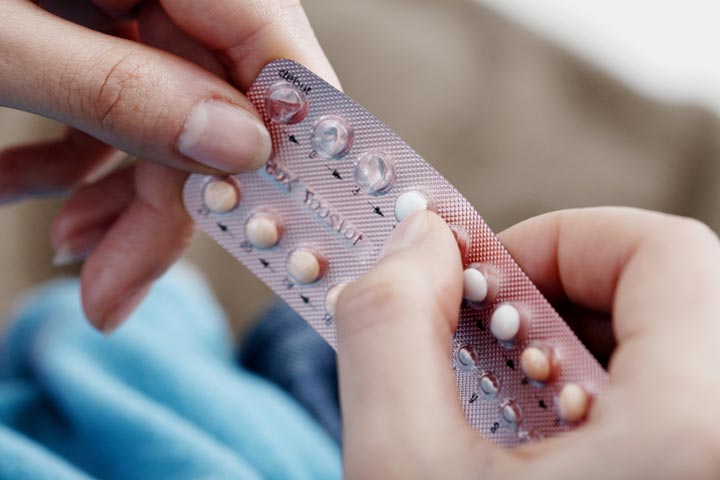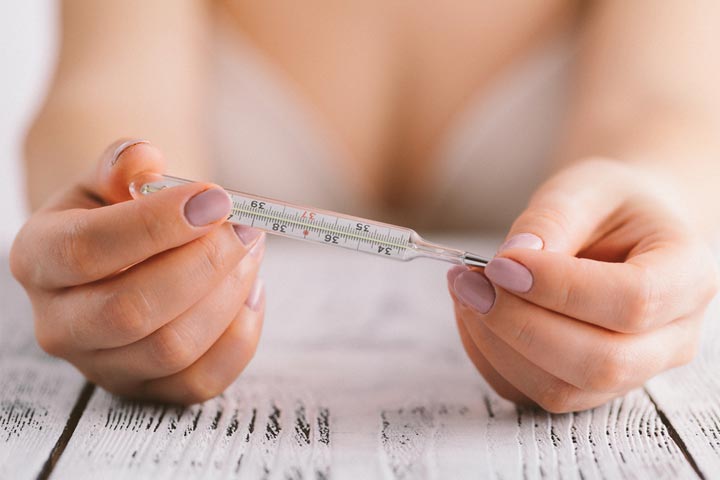
Image: Shutterstock
If you and your partner have got a serious case of baby fever, you must’ve already tried every crazy trick in the book for conception. From standing upside down after intercourse to trying every position in bed, couples try to do everything they can to improve their odds of getting pregnant. But what if we tell you that putting a bun in the oven can be surprisingly simple. Below we list 6 simple tips that will increase your chances of getting pregnant.
1. Let Go Of Birth Control Sooner Rather Than Later
Whether you are taking a pill, shot, or some other form of hormonal contraceptives, the sooner you bid adieu to them, the faster your cycles will return to normal. Birth control pills work by preventing ovulation. Once you stop taking the pills, it may take some time for your body to get back to its normal state and begin ovulation. While for some women, it only takes a couple of days, for others this may take up to a few months (1). However, if you are using Depo-Provera injection, it can take up to 10 months before you start ovulating again (2).
2. Book An Appointment With Your Doctor
Talking to a doctor will help you get a better understanding of everything you need to know to conceive faster. Whether it is about when to stop using birth control or finding the most fertile window, your doctor will be able to answer all your questions. Your doctor may also suggest getting screened for certain health conditions that may hamper your chances of having a baby so that you can get treated from the get-go.
3. Monitor Ovulation
If you’re planning for a baby, understanding ovulation takes prime importance to improve your chances of conceiving. Most women don’t have a perfect menstrual cycle, hence it might be tricky to figure out the exact date of ovulation. Ovulation typically occurs 4 days before or after the midpoint of your menstrual cycle. But signs and symptoms such as an increase in basal body temperature and change in cervical mucus could help you indicate ovulation. You can also try getting an over-the-counter ovulation kit or maintain a menstrual calendar (3).
4. Have Frequent Intercourse
Engaging in intercourse is the most important step in conception. Pregnancy rates are higher in couples who have intercourse almost every day or every other day. If it’s not possible for you to follow this, make sure you engage in intercourse every 3 days after the end of your period and near the time of your ovulation (4).
5. Skip The Lube
Or choose the right one. There’s no denying that lubricants can make intercourse a more pleasurable experience for many couples. But if you’re trying to conceive, lubricants may not be the wisest choice as it has known to decrease sperm motility, thus affecting your chances of conception. If you don’t like the idea of ditching lubes, make sure you use lubes that are hydroxyethyl cellulose-based as they don’t affect sperm mobility (5).
6. Take A Prenatal Vitamin
If you are trying to conceive, it is best to start taking prenatal vitamins before conception. Your baby’s neural tube develops in the first month of pregnancy, even before you realize that you’re pregnant. Prenatal vitamins protect your baby against any neural tube defects and support the healthy development of the fetus and the placenta. They are available over-the-counter. Look for a prenatal vitamin that contains vitamin D, calcium, and other nutrients than just iron and folic acid. Prenatal vitamins shouldn’t be taken in excess. However, your doctor may recommend higher doses if you have a history of giving birth to a baby with a neural tube defect (6).
Some simple lifestyle changes such as eating healthy and maintaining a healthy weight by working out can also boost your chances of conceiving. The pressure of trying for a baby can also cause stress in couples, making intercourse a less pleasurable experience. Though it’s normal to feel frustrated when things don’t work out, don’t let the stress get to you. Talk to your partner about how you feel and figure out how you can make things better. It’s also important to know when to seek help. If you are over 35 or have been trying to conceive for almost a year, it is best to seek professional advice.


















